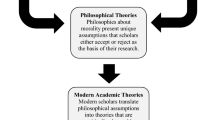Abstract
The moral intuitions and arguments of some prominent business ethics authors regarding the ethics of monopoly are drenched with contestable economic theory. Discussions too typically ignore theoretical alternatives and debates about the nature of monopolies, their assets and liabilities. I review the theoretical debates and show why they matter to business ethics. That there may be genuine cases of rivalrous monopoly, that monopolies might in the odd circumstance prove more efficient or become advantageous in contests with labor or useful in respect of a nation's international affairs does not imply we should unwary of monopolies. However, not only the best theory to date, but also the mere fact of serious disagreement in the field suggests that there is no necessary connection between monopolies and practices such as price discrimination, price fixing, bribery, collusion, and so on. This frustrates the most pervasive and most prominent argument so far for the claim that monopolies are intrinsically unethical.
Similar content being viewed by others
References
Bassiry, G. R. and M. Jones: 1993, ‘Adam Smith and the Ethics of Contemporary Capitalism’, Journal of Business Ethics 12, 621-627.
Benson, George C. S.: 1992, Business Ethics in America (D.C. Heath).
Coleman, D. C.: 1988, ‘Adam Smith, Businessmen, and the Mercantile System in England’, History of European Ideas 9(2), 161-170.
DeGeorge, Richard T.: 1995, Business Ethics, 4th ed. (Prentice Hall, Englewood Cliffs, NJ).
Dudden, Arthur P.: 1957, ‘Men Against Monopoly: The Prelude to Trust-Busting’, Journal of the History of Ideas 18, 587-593.
Ely, R. T.: 1900, Monopolies and Trusts (Macmillan, New York).
Hayek, F.: 1967, Studies in Philosophy, Politics, and Economics (University of Chicago Press, Chicago) (originally Routledge).
Marx, K.: 1976, 1978, 1981, Capital (Penguin Books, Harmondsworth) (three vols.).
Schumpeter, J. A.: 1991, The Economics and Sociology of Capitalism, ed. R. Swedberg (Princeton University Press, Princeton, NJ).
Smith, A.: 1976, An Inquiry into the Nature and Causes of the Wealth of Nations (Clarendon Press, Oxford).
Teichgraeber, Richard F. III.: 1986, ‘Free Trade’ and Moral Philosophy: Rethinking the Sources of Adam Smith's Wealth of Nations (Duke University Press, Durham, NC).
Velasquez, Manuel G.: 1998, Business Ethics: Concepts and Cases, 4th ed. (Prentice-Hall, Upper Saddle River, NJ).
Author information
Authors and Affiliations
Rights and permissions
About this article
Cite this article
DeMarco, C.W. "Knee Deep in Technique: The Ethics of Monopoly Capital". Journal of Business Ethics 31, 151–164 (2001). https://doi.org/10.1023/A:1010797229865
Issue Date:
DOI: https://doi.org/10.1023/A:1010797229865




